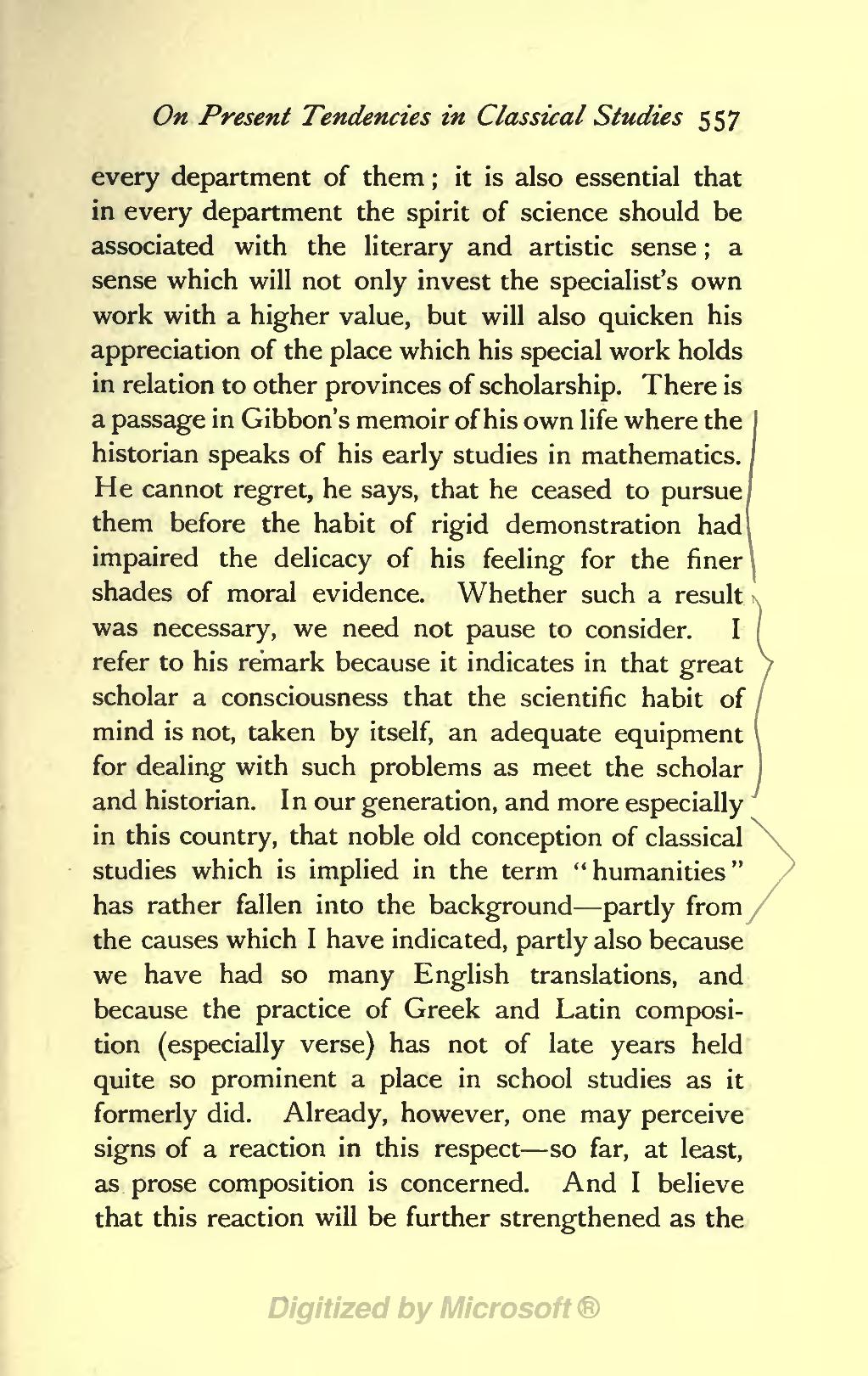every department of them; it is also essential that in every department the spirit of science should be associated with the literary and artistic sense; a sense which will not only invest the specialist's own work with a higher value, but will also quicken his appreciation of the place which his special work holds in relation to other provinces of scholarship. There is a passage in Gibbon's memoir of his own life where the historian speaks of his early studies in mathematics. He cannot regret, he says, that he ceased to pursue them before the habit of rigid demonstration had impaired the delicacy of his feeling for the finer shades of moral evidence. Whether such a result was necessary, we need not pause to consider. I refer to his remark because it indicates in that great scholar a consciousness that the scientific habit of mind is not, taken by itself, an adequate equipment for dealing with such problems as meet the scholar and historian. In our generation, and more especially in this country, that noble old conception of classical studies which is implied in the term "humanities" has rather fallen into the background—partly from the causes which I have indicated, partly also because we have had so many English translations, and because the practice of Greek and Latin composition (especially verse) has not of late years held quite so prominent a place in school studies as it formerly did. Already, however, one may perceive signs of a reaction in this respect—so far, at least, as prose composition is concerned. And I believe that this reaction will be further strengthened as the
Page:Essays and Addresses.djvu/568
